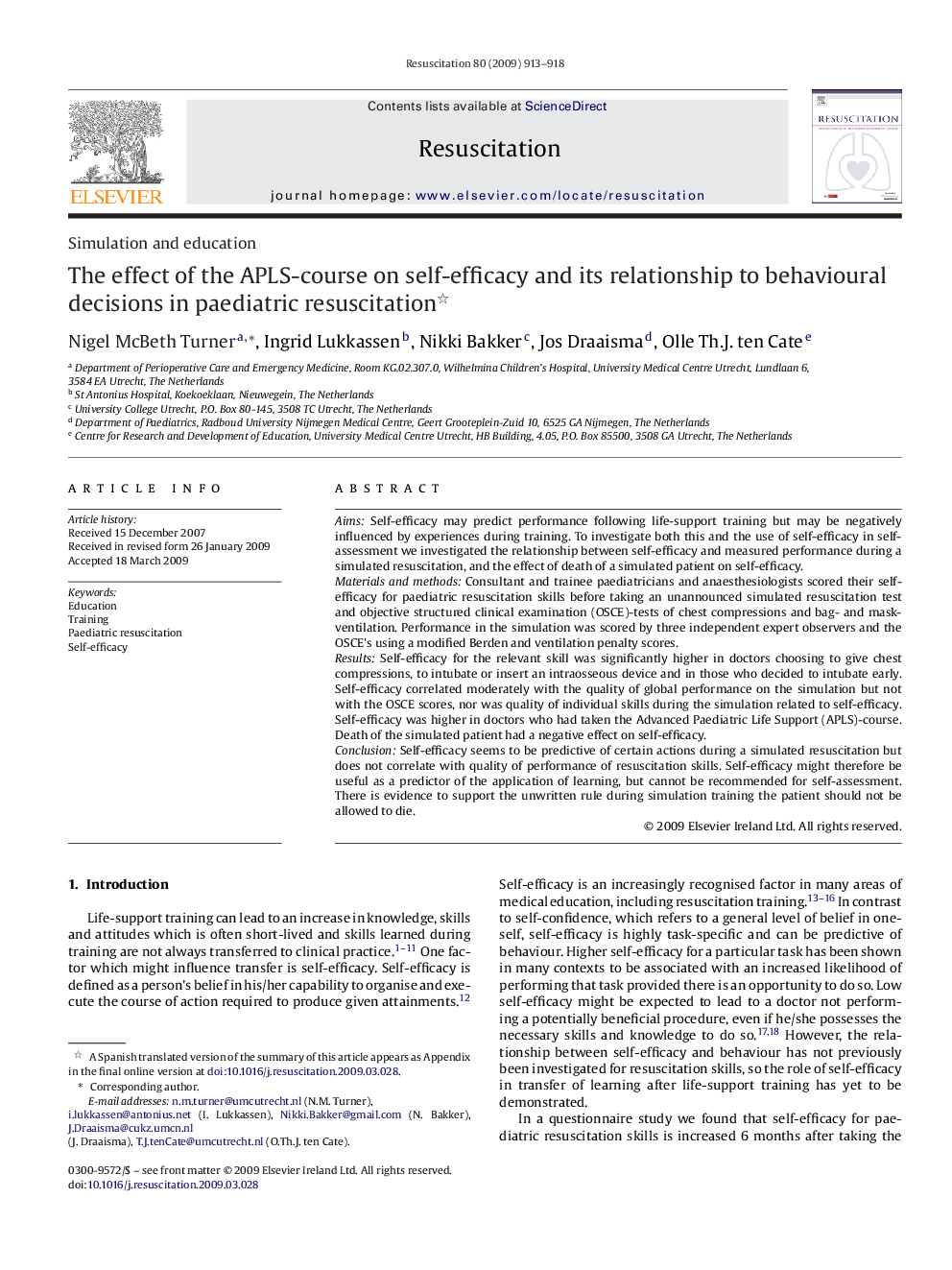| کد مقاله | کد نشریه | سال انتشار | مقاله انگلیسی | نسخه تمام متن |
|---|---|---|---|---|
| 3010227 | 1181507 | 2009 | 6 صفحه PDF | دانلود رایگان |

AimsSelf-efficacy may predict performance following life-support training but may be negatively influenced by experiences during training. To investigate both this and the use of self-efficacy in self-assessment we investigated the relationship between self-efficacy and measured performance during a simulated resuscitation, and the effect of death of a simulated patient on self-efficacy.Materials and methodsConsultant and trainee paediatricians and anaesthesiologists scored their self-efficacy for paediatric resuscitation skills before taking an unannounced simulated resuscitation test and objective structured clinical examination (OSCE)-tests of chest compressions and bag- and mask-ventilation. Performance in the simulation was scored by three independent expert observers and the OSCE's using a modified Berden and ventilation penalty scores.ResultsSelf-efficacy for the relevant skill was significantly higher in doctors choosing to give chest compressions, to intubate or insert an intraosseous device and in those who decided to intubate early. Self-efficacy correlated moderately with the quality of global performance on the simulation but not with the OSCE scores, nor was quality of individual skills during the simulation related to self-efficacy. Self-efficacy was higher in doctors who had taken the Advanced Paediatric Life Support (APLS)-course. Death of the simulated patient had a negative effect on self-efficacy.ConclusionSelf-efficacy seems to be predictive of certain actions during a simulated resuscitation but does not correlate with quality of performance of resuscitation skills. Self-efficacy might therefore be useful as a predictor of the application of learning, but cannot be recommended for self-assessment. There is evidence to support the unwritten rule during simulation training the patient should not be allowed to die.
Journal: Resuscitation - Volume 80, Issue 8, August 2009, Pages 913–918